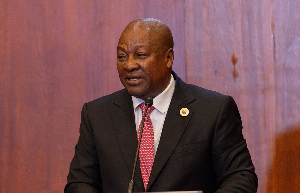The Kwame Nkrumah University of Science and Technology (KNUST), has completed processes for the smooth take-off of its School of Public Health.
The School, borne out of the University’s School of Medical Sciences (SMS), is mandated to train experts, scientists and technocrat in public health specialisation.
Professor William Otoo Ellis, Vice-Chancellor of the KNUST, indicated that the overall objective is to help increase the number of professionals to bolster healthcare delivery.
The School, which commences academic work this year, is strategised to address the public health challenges in Ghana and the sub-region in general, ranging from the recurrence of communicable diseases to the shortage of skilled personnel.
Addressing the 21st Oath-Swearing and Induction Ceremony of the KNUST SMS in Kumasi on Saturday, Prof Ellis said the University is committed to its vision to churn out the critical human resource required to spearhead the development agenda of the nation, particularly in the area of science and technology.
The programme, held under the auspices of the College of Health Sciences and Ghana Medical and Dental Council, saw a total of 107 newly-qualified Doctors taking the Hippocratic Oath.
Established in 1975 with an original mandate to train Physicians, Medical Scientists and medical laboratory technologists, the SMS had expanded over the years and is now involved in the training of postgraduate doctors for the professional membership and fellowship certification of Ghana College of Physicians and Surgeons and the West African Postgraduate Medical College.
Currently, the School has the largest number of departments and programmes as far as the university is concerned with the prospects for further expansion.
It had over the years nurtured the KNUST Dental School, which had already graduated two cohorts of dentists who are in the field practicing, as well as the School of Veterinary Medicine, established in 2009 to run a six-year Doctor of Veterinary Medicine programme.
Prof Ellis said the SMS has been implementing some internal initiatives, including the establishment and furnishing of a 200-seater e-learning facility, the provision of a video conferencing facility to aid in the teaching of large classes, as well as the provision of expanded wireless internet connectivity to support research and academic.
He urged corporate bodies to strive to partner the University to expand its infrastructure to achieve its mission statement.
Health News of Sunday, 24 August 2014
Source: GNA
Ghana to produce more public health professionals
Entertainment











